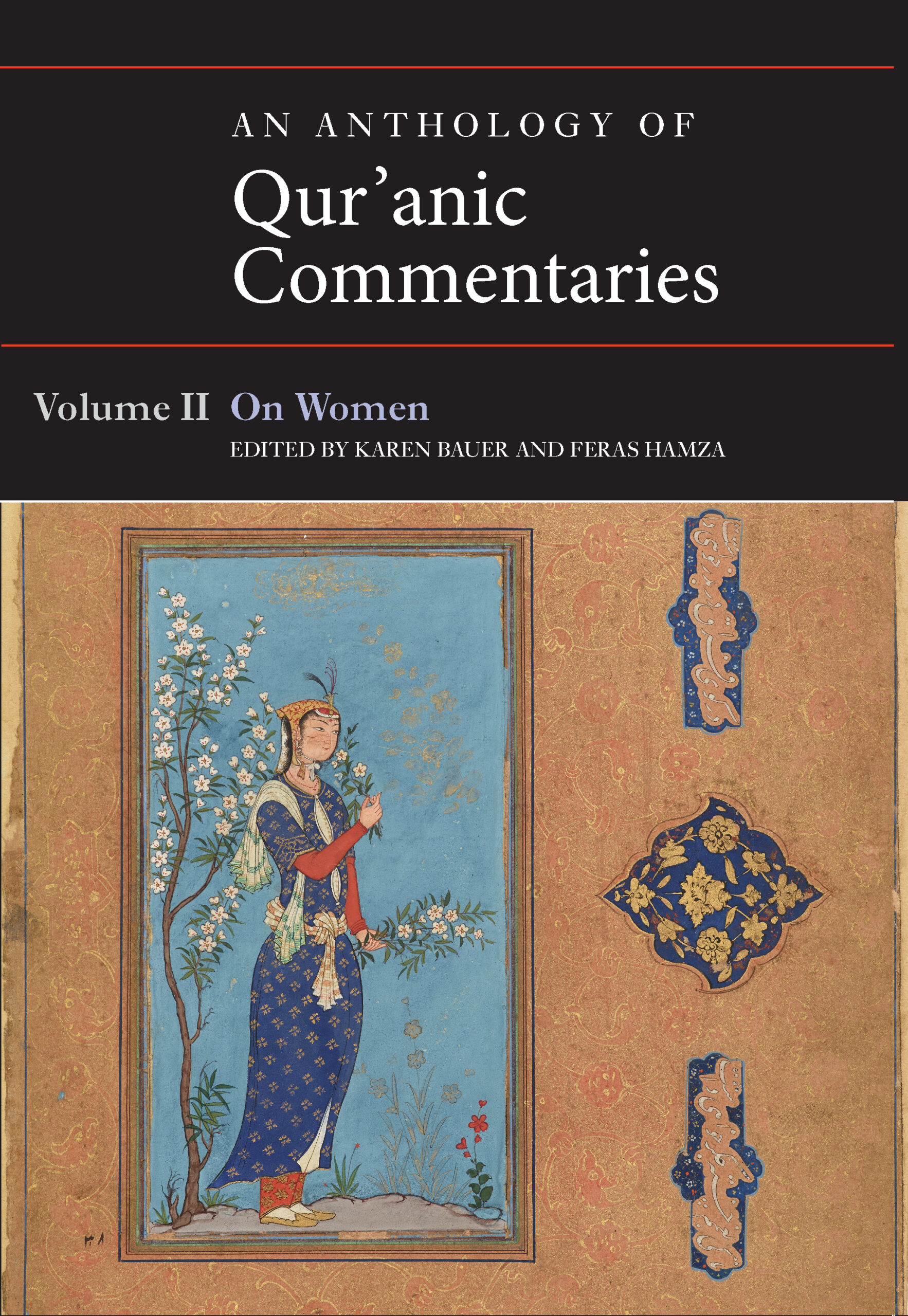Building on the success of Anthology, Volume I: On the Nature of the Divine, this second volume in the series focuses on a critical and contentious theme: Women in the Qur’an(also Koran. Arabic term meaning, ‘recitation’ or ‘scripture’): Muslims believe that the Holy Qur’an contains divine revelations to the Prophet Muhammed received in Mecca and Medina over a period of… More and traditional Qur’anic commentaries. It comprises analysis of the female subject in the Qur’an, annotated translations of Qur’anic commentaries spanning twelve centuries, interviews of contemporary Muslim scholars and extensive introductory materials, which frame the work throughout and render these technically complex materials accessible to the reader. On Women begins with a critical introduction to the study of women and gender in the genre of Qur’anic commentaries. A unique prolegomenon then follows key Qur’anic terms in a chronological sequence, showing how the Qur’an’s world view on women developed from the earliest Meccan revelations, when women were addressed only implicitly as a part of households or in the course of anti-pagan polemic, to the period of the final revelations in Medina, when women were addressed directly as pious and social subjects. The remainder of the volume translates, critically annotates, and analyses interpretations of six select Qur’anic verses on women. These verses, chosen because of their relevance to women’s lived experience, speak of the creation of humankind beginning with a single soul (Q. 4:1); the exemplary figure of Mary, the mother of Jesus (Q. 3:35–6); women’s status in marriage (Q. 4:34); women’s legal testimony and hence legal capacity (Q. 2:282); and ‘veiling’ as it relates to Qur’anic norms of modesty (Q. 24:31). While highlighting variation, continuity, and plurality in the genre of Qur’anic commentaries, Volume II goes beyond medieval interpretive paradigms to include perspectives marginalised by that tradition, such as the voices of women themselves.
Foreword by Dr Omar Alí-de-Unzaga
Acknowledgements
Note on Translation and Conventions
List of Abbreviations
Introduction
Prolegomenon: The Qurʾānic lexicon on women
The Commentators and their Commentaries
Map of Centres of Learning in the Islamic World
1. Human creation (Q. 4:1)
Muqātil; Hūd; Qummī; Ṭabarī; Qāḍī al-Nuʿmān; Qushayrī; Muʾayyad fī’l-Dīn al-Shīrāzī; Zamakhsharī; Ṭabrisī; Rāzī; Qurṭubī; Kāshānī; Ibn Kathīr; Muḥsin al-Fayḍ al-Kāshānī; Burūsawī; ʿAbduh and Riḍā; Faḍl Allāh; Fariba Alasvand; Mehdi Mehrizi; Nasser Ghorbannia; Sa’diyya Shaikh; amina wadud
2. Mary (Q. 3:35–6)
Muqātil; Hūd; Qummī; Ṭabarī; Qāḍī al-Nuʿmān; Qushayrī; Zamakhsharī; Ṭabrisī; Rāzī; Qurṭubī; Kāshānī; Ibn Kathīr; Muḥsin al-Fayḍ al-Kāshānī; Burūsawī; ʿAbduh and Riḍā; Faḍl Allāh
3. Marital Roles (Q. 4:34)
Muqātil; Hūd; Qummī; Ṭabarī; Qushayrī; Zamakhsharī; Ṭabrisī; Rāzī; Qurṭubī; Ibn Kathīr; Muḥsin al-Fayḍ al-Kāshānī; Burūsawī; ʿAbduh and Riḍā; Faḍl Allāh; Grand AyatollahFrom Arabic (āyat Ullāh), lit. Sign of God; a title used by the Imami Twelver Shi‘is. The rank of Ayatollah is believed to have been established in the Safawid period… Saanei; Fariba Alasvand; Mehdi Mehrizi; Sa’diyya Shaikh; amina wadud
4. The Veil (Q. 24:31)
Muqātil; Hūd; Qummī; Ṭabarī; Qāḍī al-Nuʿmān; Qushayrī; Zamakhsharī; Ṭabrisī; Rāzī; Qurṭubī; Ibn Kathīr; Muḥsin al-Fayḍ al-Kāshānī; Burūsawī; Faḍl Allāh; Sa’diyya Shaikh; amina wadud
5. Women’s Testimony (Q. 2:282)
Muqātil; Hūd; Qummī; Ṭabarī; Qāḍī al-Nuʿmān; Zamakhsharī; Ṭabrisī; Rāzī; Qurṭubī; Ibn Kathīr; Muḥsin al-Fayḍ al-Kāshānī; Burūsawī; ʿAbduh and Riḍā; Faḍl Allāh; Fariba Alasvand; Yūsuf Saanei; Mehdi Mehrizi; Nasser Ghorbannia
Prosopographical appendix
Bibliography
Index of Qurʾānic Citations
Index
‘The impressive Anthology of Qur’anic Commentaries, Volume II stands out as a piece of solid scholarship, diligent editing and breadth of coverage … [Anthology of Qur’anic Commentaries, Volume II] will be read with much profit by all those interested in the study of gender issues in Islam.’
– Abdur Raheem Kidwai, The Muslim World Book Review
Karen Bauer is a Senior Research Associate at the Institute of Ismaili Studies, London. She is the author of Gender Hierarchy in the Qurʾān: Medieval Interpretations, Modern Responses (Cambridge, 2015) and editor of Aims, Methods and Contexts of Qur’anic Exegesis (2nd/8th–9th/15th C.) (Oxford, 2013). She has also published on the history of Qur’anic interpretation, on women’s status as judges and witnesses in Islamic law, and on the history of emotions in Islam.
Feras Hamza is Head of the School of the Humanities and Social Sciences at the University of Wollongong in Dubai, UAE, and is also a Research Fellow in the Qur’anic Studies Unit at the Institute of Ismaili Studies, London. He co-edited (with Sajjad Rizvi and Farhana Mayer) An Anthology of Qur’anic Commentaries, Volume I: On the Nature of the Divine (Oxford, 2008) and is the general series editor for the multi-volume Anthology of Qur’anic Commentaries. He has authored several historical articles on the early Muslim community, as well as articles on the epistemological and methodological approaches in Qur’anic and tafsīr studies. He is currently working on a hermeneutics-based project entitled Time and Narrative in the Qur’an.

